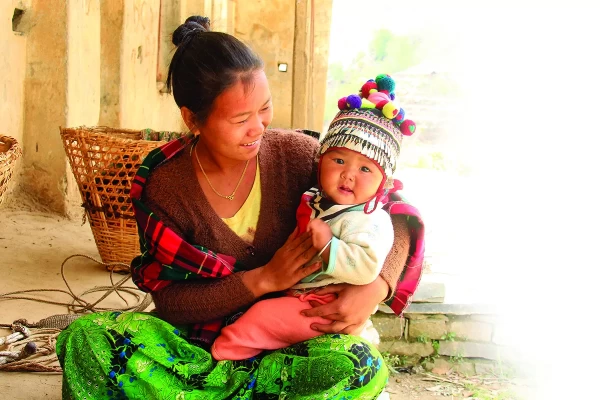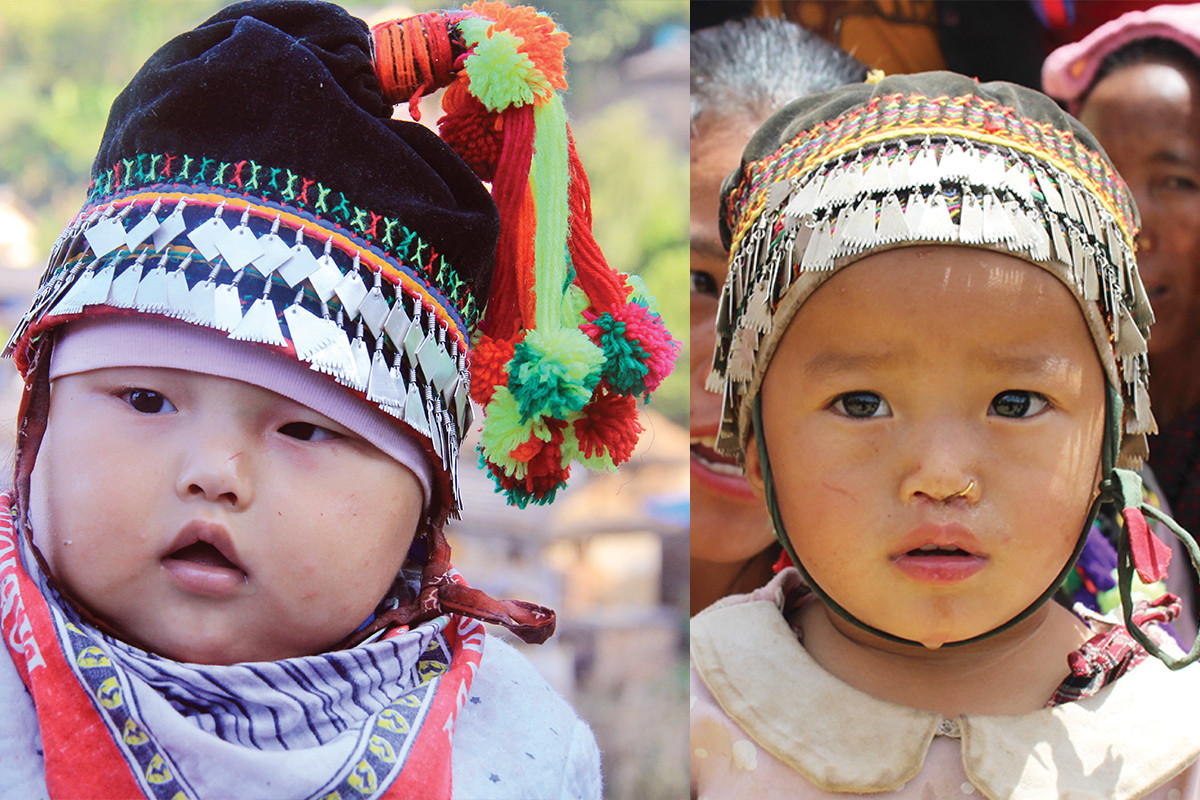
Artistic caps most widely worn by infants in the Rolpa and Rukum districts of Nepal
The Dhaka Topi (Nepali Cap) is commonly worn by men of all ages, from young children, teenagers to the elderly. These topis come in different shapes, colors and styles. In rural Nepal, the Dhaka Topi is worn daily, while in urban areas, the topi is donned on special occasions and festivals.
You may also read: The Unique 12 Years Festivals of Nepal | Barha Barsey Mela
On the contrary, children of Rolpa and Rukum of western Nepal frequently wear the Jhumke Topis. Any person who travels through the remote regions are captivated by the innocence of these cute children with the artistic topis on their head. These Jhumke Topis are decorated with colorful floral designs bordered by aluminum coins in two to three lines.
Locally known as the Chemana in Magar Kham dialect, the topi is given to newborns after their rice feeding ceremony. Traditionally, the caps are given by the child’s aunt as a gift. Such caps are habitually worn by children from three months to three years of age. The Jhumke topis are also presented as a souvenir by their maternal uncle. As per local custom, it is mandatory for the first born of the family to wear the Jhumke topi.

An interesting feature of the Jhumke Topi is that it balances heat and cold. According to Trishna Roka Magar from Thabang, the main purpose of the topi is to protect the child from heat and cold. The baby is kept warm during the winter season and kept cool during the hotter seasons. Hence, the cap can be worn year round no matter the temperature. Madan Kumar Roka from Rukum further explained, “The Jhumke Topi helps to maintain the shape of the baby’s head and is a symbol of Athara Magarat.” Women sew the cloth, local craftsmen design the silver coins and the tailor finally prepares the cap. Along with the cap, children also wear bangles and golden nose ring.
The price of the Jhumke Topi ranges between Rs. 6000 - Rs. 12,000. However, the introduction of the modern caps in rural areas have somewhat replaced the use of the Jhumke topi. “The local government has concerns about this issue, and is planning to preserve it for future generations.” said Ramsur Budha Magar, Chief of Bhume Rural Municipality.




